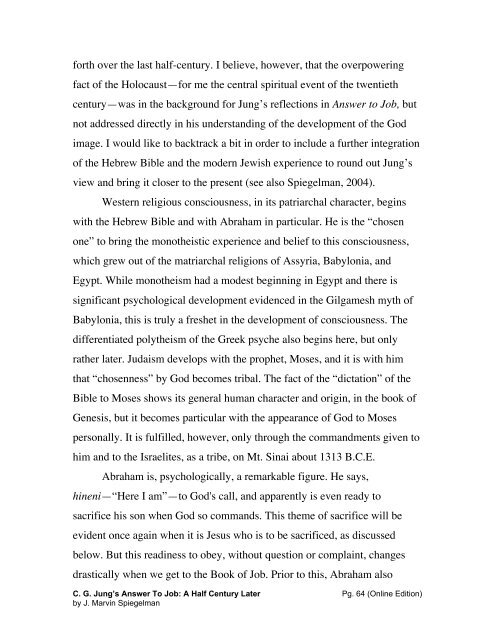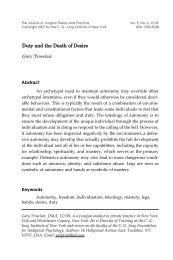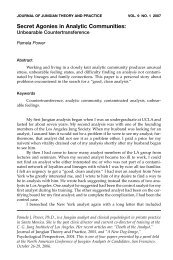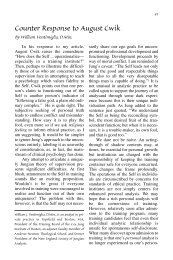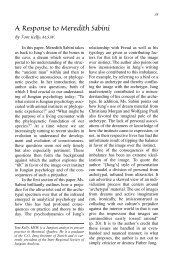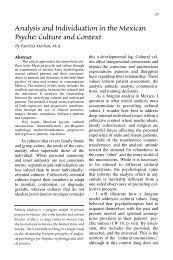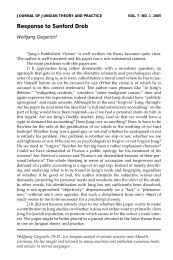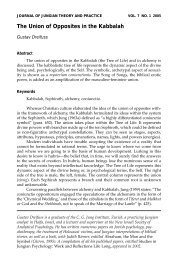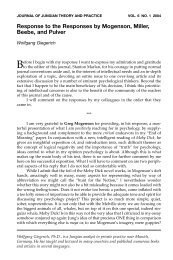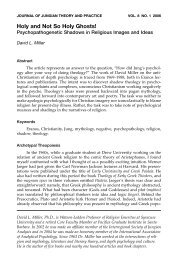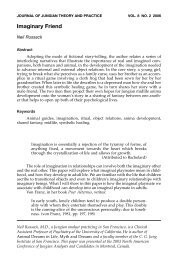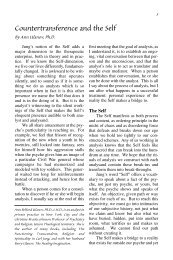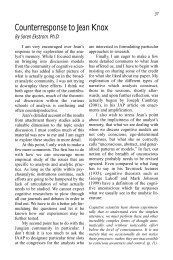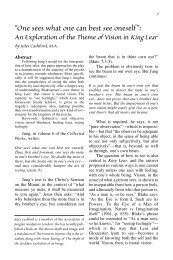JOURNAL OF JUNGIAN THEORY AND PRACTICE - CG Jung ...
JOURNAL OF JUNGIAN THEORY AND PRACTICE - CG Jung ...
JOURNAL OF JUNGIAN THEORY AND PRACTICE - CG Jung ...
Create successful ePaper yourself
Turn your PDF publications into a flip-book with our unique Google optimized e-Paper software.
forth over the last half-century. I believe, however, that the overpoweringfact of the Holocaust—for me the central spiritual event of the twentiethcentury—was in the background for <strong>Jung</strong>’s reflections in Answer to Job, butnot addressed directly in his understanding of the development of the Godimage. I would like to backtrack a bit in order to include a further integrationof the Hebrew Bible and the modern Jewish experience to round out <strong>Jung</strong>’sview and bring it closer to the present (see also Spiegelman, 2004).Western religious consciousness, in its patriarchal character, beginswith the Hebrew Bible and with Abraham in particular. He is the “chosenone” to bring the monotheistic experience and belief to this consciousness,which grew out of the matriarchal religions of Assyria, Babylonia, andEgypt. While monotheism had a modest beginning in Egypt and there issignificant psychological development evidenced in the Gilgamesh myth ofBabylonia, this is truly a freshet in the development of consciousness. Thedifferentiated polytheism of the Greek psyche also begins here, but onlyrather later. Judaism develops with the prophet, Moses, and it is with himthat “chosenness” by God becomes tribal. The fact of the “dictation” of theBible to Moses shows its general human character and origin, in the book ofGenesis, but it becomes particular with the appearance of God to Mosespersonally. It is fulfilled, however, only through the commandments given tohim and to the Israelites, as a tribe, on Mt. Sinai about 1313 B.C.E.Abraham is, psychologically, a remarkable figure. He says,hineni—“Here I am”—to God's call, and apparently is even ready tosacrifice his son when God so commands. This theme of sacrifice will beevident once again when it is Jesus who is to be sacrificed, as discussedbelow. But this readiness to obey, without question or complaint, changesdrastically when we get to the Book of Job. Prior to this, Abraham alsoC. G. <strong>Jung</strong>’s Answer To Job: A Half Century Later Pg. 64 (Online Edition)by J. Marvin Spiegelman


